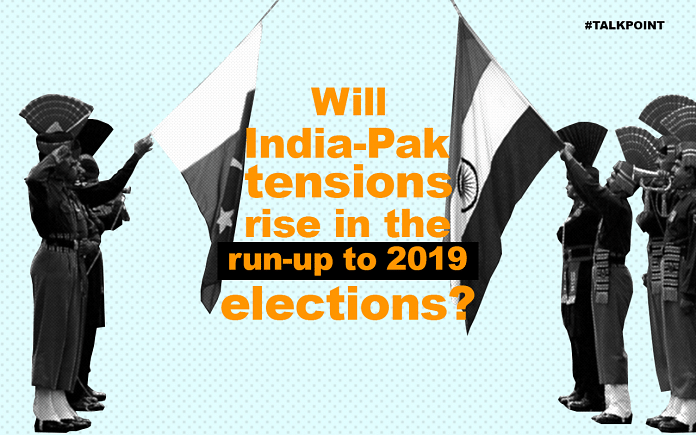ThePrint asks:
Will India-Pakistan tensions rise in the run up to 2019 elections?
The India-Pakistan relationship has been dead in the water for the last several years. The reality is that Pakistan hasn’t engaged in negotiations in good faith. It has used them as a tactic to legitimise its position in the international community, even while it continues to support and foment terrorism on Indian soil.
The basic thing that most advocates of negotiations tend to neglect is that there are negotiations in good faith and then there tactical ones. India and Pakistan haven’t had a negotiation in good faith. Pakistan’s objectives in Kashmir and the wider Indian context remain unaltered.
The domestic political dynamic in Pakistan is such that there is no foreseeable hope of any radical change in its purpose, objectives and strategy. Tactics may vary from time to time due to external factors, domestic compulsions, or shifts in priority — for instance, to terrorism in Afghanistan, as compared to Jammu and Kashmir. These may lead to transient escalation or de-escalation of conflict with India, and/or increased willingness to engage in negotiations. Another factor that influences this relationship is international pressure. As far as fundamentals are concerned, however, there is no evidence that there will be a shift.
Here are other sharp perspectives on the question:
Salman Bashir, Pakistani diplomat who served as the former high commissioner to India.
Arun Singh, former Indian ambassador to the US
Moreover, when the Modi regime made a foray into improving relationships, it could not have been effective. The nature of the ruling alliance (and its Hindutva orientation), as well as a range of initiatives, including the surgical strikes, have resulted in an escalation in the Indo-Pak conflict in Jammu and Kashmir. This is the natural dynamic of the Hindutva strategy of electoral consolidation.
Both the Indian electoral dynamic and Pakistan electoral dynamic are now feeding into each other.
The character of negotiations is defined by the equation of power between the negotiating parties. There have only been marginal shifts in this equation over the decades, such as a relative weakening of the Pakistan economy. Twenty-five years ago, Pakistan’s per capita income surpassed India, but has now fallen really low. At this point in time, it seems to have lost America as an ally. But it believes it has gained China instead. In its own calculus, consequently, it does not experience any extraordinary or urgent pressure to abandon its entrenched strategy.
Both countries have assessed their strengths and weakness, and unless these change dramatically in favour of one or the other, the equation remains constant. The other alternative is that both weaken to such an extent that conflict becomes unaffordable, another improbable eventuality. Till radical changes in the equation of power are forced, negotiations will remain purely tactical and unproductive.
Ajai Sahni is the Executive Director, Institute for Conflict Management



